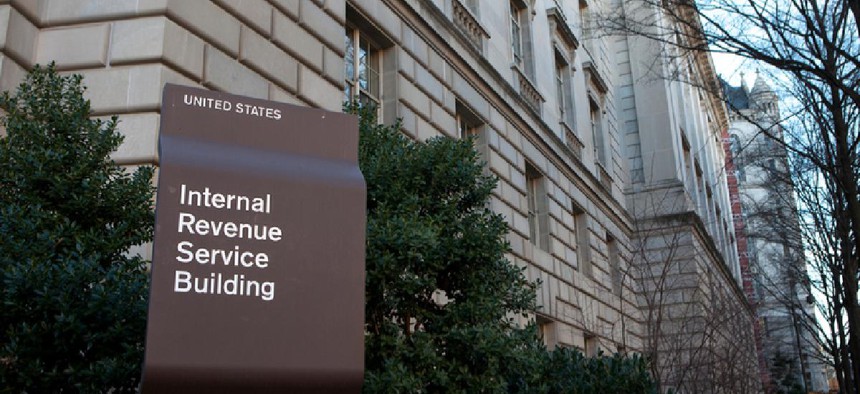IRS tries agile acquisition for data tools

The first in a series of expected technology pilots at the agency will focus on robotic process and intelligent automation tools for contract data.

No one has ever accused the IRS, which still regularly uses software and systems that are more than 60 years old, of operating on the cutting edge of technology. But the tax agency is hoping a new pilot program to acquire new technology will help change that perception.
A draft solicitation released August 2 seeks proposals for a Treasury-wide Data Governance and Analytics Initiative that will make use of a new procurement vehicle rolled out last year, dubbed Pilot IRS, to develop new ways to automate and refine departmental contract data.
That's not all Pilot IRS is designed to do. It will serve as an overarching framework for multiple technology pilots down the road as officials essentially attempt to create a sandbox for innovation inside the agency that is unmoored from the traditionally sluggish and bureaucratic federal procurement process. The program will manage and release a series of multi-phase "solution challenges" to the public, each focusing on a different technology or area the agency wants to further explore.
Each challenge is worth up to $7 million, with the results from early phases helping officials determine whether to continue funding future ones.
"For those who are familiar with traditional government procurements, Pilot IRS will appear substantively different from how the government normally buys technology," the agency wrote in its draft solicitation. "To be fair, it is."
The broader Pilot IRS program lays out three goals: promote technological innovation to solve pressing challenges at the agency, communicate those challenges to the broader tech community and cut down on the bureaucratic red tape that makes pursuing innovation difficult to impossible in the government space.
On that last front, the program is set up to get around federal procurement rules that prohibit agencies from identifying particular technologies or firms for funding based on "a previous, separate contractual arrangement, regardless of how successful it may have been." That means that agencies can sometimes struggle to follow up promising pilot projects into more sustainable, long-term procurements.
"By identifying streamlined submission/evaluation procedures and a structured progression from concept to prototype, testing, and limited deployment through the use of phases, Pilot IRS seeks to avoid many of these issues," the draft solicitation states.
Perhaps the most unusual feature of the program: IRS officials don't appear to care very much what technology, system or process a company uses so long as they help to achieve the larger objectives laid out for each project.
For example, the first challenge, focused on robotic process and intelligent automation tools, seeks industry help to overhaul the agency's still largely manual process for entering and correcting financial and non-financial contract data. Officials want to improve IRS data within the Federal Procurement Data System, limit manual work cleaning up that data and achieve "incremental improvement" very quickly. Before the close of fiscal year 2019 according to an "aspirational goal" stated in contracting documents.
How to get there is left entirely up to the imagination of respondents.
"There are no specific solutions or approaches that are being requested; rather, any approach which is focused on the three goals of the solicitation will be considered," the document states.
The August 2 draft bid is for "phase 1" services, which consists of a proof of concept demonstration and supporting documentation on cost, manhour savings and return on investment. If the project is continued, phases two through four will deal with prototypes, testing and deployment.
Any solution or technology needs that come out of the pilot program will go through the normal open bidding process, according to contacting documents.


